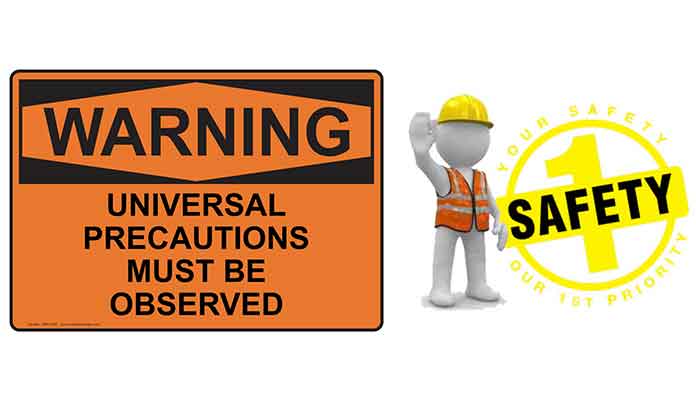The bodily fluids of a patient can carry disease and spread to other persons. The practice of universal precautions goes back to 1985. The idea or basic concept is to these universal precautions to protect yourself from those harmful bodily fluids. There are different types of products that an individual can use for that protection. Typical examples of equipment include face shields, goggles, and medical gloves.
Some Standard Universal Precautions
The basic idea behind the introduction of standard universal precautions is to help reduce the risk of disease spread. There can be recognized or unrecognized sources from which one can get an infection. Blood, besides the body fluid, can sometimes be responsible for the spread of an illness. Therefore, a person carrying a disease may not even know about it.

Safety Precautions for Children
Here is a look at the universal precautions for child safety.
- Always wash hands when toileting or diapering a child.
- Make sure to wash hands when handling any body fluids.
- Also, when a person gives someone first aid, they must wash their hands afterward.
- Therefore, the health practitioners also recommend the use of porous gloves.
- Furthermore, some of the materials that health practitioners must consider using include disposable towels, and disposable diaper table paper.
- The use of latex gloves can also help in some cases. They are particularly useful when a person gets in physical contact with feces or vomit. Similarly, a person with rashes or scratches must also use it.
- Environmental sanitization also plays a significant part in controlling the spread of the harmful viruses and bacteria.
Universal Precautions for Pool Safety
Pools are homes to a large number of germs of different types. Therefore, whenever you visit a pool, always make sure that you understand the health risks.
Here is a look at the precautions for pool safety.
- If the lifeguard gives you any directions, always follow them.
- Also, there are local pool rules that you need to follow.
- Child safety is also critical for pools. Therefore, if a child goes to a poolside, they must be accompanied by someone who knows how to swim.
- Avoid running on the sides of the pool as it increases the risk of slipping and breaking a limb.
- Only dive if you are a good swimmer and there is a lifeguard available to handle the emergency situation.
- Always take the after-swim shower using an antiseptic soap to avoid catching any germs or diseases.


